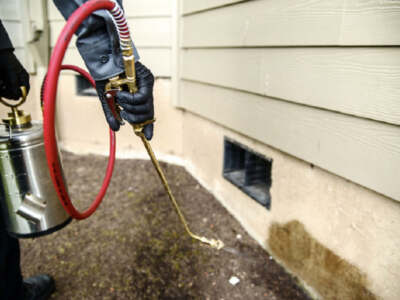Reducing plastic waste is a top priority for many people and businesses. With the growing concern about the environmental impact of plastic, compostable packaging is becoming an increasingly popular option.
Compostable packaging offers numerous benefits, from reducing landfill waste to providing a more sustainable product. In this article, we’ll discuss the importance of reducing plastic waste and how compostable packaging can help make it happen.
Compostable packaging provides an eco-friendly solution to reduce plastic waste in our environment. By using biodegradable materials instead of plastic, compostable packaging helps divert plastics away from landfills and oceans, where they can cause serious damage to wildlife and ecosystems.
Additionally, compostable packaging reduces the amount of energy required to create new materials while also helping to reduce carbon emissions. Ultimately, using compostable packaging is not just good for the environment — it’s also beneficial for businesses looking to go green.
The Problem With Plastic Packaging
Plastic packaging has been a major contributor to the world’s waste problem. It’s durable and lightweight, making it attractive for many businesses. But its durability also makes it an obstacle to proper disposal and recycling. Many plastics end up in landfills or oceans, where they can take centuries to decompose.
This is why reducing plastic waste is so important – it’s essential for preserving the environment for future generations.
Compostable packaging is one way of tackling this issue. Compostable materials like paper, cardboard, and plant-based bioplastics are designed to break down quickly when exposed to air, water, and microorganisms in soil or compost piles.
They can be safely processed into compost that can then be used as fertilizer for gardens and farms, providing a valuable source of nutrients for plants without the need for synthetic fertilizers or pesticides.
Eliminating plastic waste and replacing it with compostable packaging is beneficial in more ways than one. Not only does it reduce our impact on the planet by preventing plastic from entering landfills and oceans, but it also helps create a healthier food system by returning organic material back into the soil in an efficient manner.
The Benefits Of Compostable Packaging
The problem with plastic packaging is well-known and far-reaching. It’s an environmental hazard that takes hundreds of years to decompose. Despite the countless efforts to reduce single-use plastic, it continues to be a major source of pollution and waste.
Fortunately, there are alternatives that can help us combat this problem.
Compostable packaging is one way to reduce plastic waste while still maintaining the convenience of single-use items. Compostable packaging offers several benefits:
- It’s made from organic materials such as corn starch, sugar cane, or bamboo – all of which are renewable sources.
- It’s designed to break down in a composting environment within a matter of months after use instead of lasting for centuries like plastic does.
- It has a smaller carbon impact than traditional plastics because it doesn’t rely on petroleum for manufacturing.
- Unlike plastic, it’s non-toxic and won’t contribute any pollutants or hazardous chemicals into our waterways or soil when it breaks down.
- It can be recycled if not composted and turned into other products such as paper or cardboard – helping us reduce our dependence on virgin resources.
Harnessing the power of compostable packaging can help us drastically reduce plastic waste while also providing additional environmental benefits at the same time. There’s no denying that this type of packaging can have a positive impact on our planet and its inhabitants – making it an essential part of any sustainable solution moving forward.
Why Compostable Packaging Is Environmentally Friendly
The use of compostable packaging is becoming increasingly popular as a way to reduce plastic waste, and it has numerous benefits for the environment.
Take one example: a small café in San Francisco that switched from conventional plastic packaging to compostable materials. The café used its own landfill-free composting system, reducing the amount of waste sent to landfills by 98%. This not only greatly reduced their carbon footprint, but it also allowed them to recycle nutrients back into the soil.

Compostable packaging is made from biodegradable materials like paper, cardboard, and plant-based plastics. These materials are easily broken down into organic matter after they have been used and disposed of properly. This prevents harmful chemicals from leaching into the environment and reduces pollution caused by traditional plastic packaging.
Additionally, compostable packaging can be recycled or reused multiple times before breaking down entirely. The use of compostable packaging helps reduce our reliance on single-use plastics, which take hundreds of years to decompose and release harmful toxins into the air when burned.
Switching to more eco-friendly options like compostables can make a big difference when it comes to protecting our planet for future generations. With so many benefits for both businesses and consumers alike, investing in sustainable packaging practices is an easy way to do your part for the environment.
How Compostable Packaging Reduces Carbon Emissions
Compostable packaging is a great way to reduce the amount of plastic waste in our environment. It breaks down naturally and quickly when exposed to microorganisms in the soil, meaning that it won’t stick around as an environmental polluter.
Not only does this help keep our world clean, but it also reduces carbon emissions. The manufacturing process of compostable packaging requires fewer resources than traditional plastic-based products.
This means that less fossil fuels are needed to create them, which decreases the amount of greenhouse gas emissions released into the atmosphere from their production.
Furthermore, composting organic matter such as food scraps and compostable packaging produces a nutrient-rich soil amendment for crops and gardens, which further reduces the need for chemical fertilizers that can damage ecosystems and contribute to global warming.
By switching from traditional plastic packaging to compostable options, businesses can make an important contribution towards reducing their carbon footprint and helping make our planet cleaner and healthier for years to come.
Adopting these eco-friendly alternatives is a great way for companies to demonstrate their commitment to sustainability while also helping protect the environment.
The Cost Benefits Of Compostable Packaging
The cost benefits of compostable packaging are clear. Not only is it more environmentally friendly, but it also saves money in the long run.
By investing in compostable packaging now, companies can lower their costs by reducing or eliminating the need for plastic bags and other materials. As compostable packaging is made from natural materials such as plant-based fibers, it’s biodegradable, making it far less expensive to dispose of than traditional plastic.
Furthermore, since compostable packaging is often thinner and lighter than conventional plastic options, businesses can save on shipping costs. Using compostable packaging is a great way to help reduce plastic waste and move towards an eco-friendly future.
It’s an investment that pays off both financially and environmentally – a win-win situation for everyone involved. Companies that make the switch to compostable packaging will find that they save money while helping to protect the environment at the same time.
Making The Switch To Compostable Packaging
Making the switch to compostable packaging can be a complete game-changer for businesses and the environment alike.
It’s like a breath of fresh air, blowing away all the plastic waste that has been polluting our planet, while still providing customers with the convenience they crave.
It is no exaggeration to say that compostable packaging could revolutionize how we consume products – and it’s time to make the switch now!
For starters, compostable zipper bags can help reduce single-use plastic waste by up to 70%. That’s an incredible amount of trash diverted from landfills and oceans each year, helping us create a healthier planet and future generations.
Additionally, making this switch requires minimal effort on behalf of businesses. Compostable packaging is just as convenient as plastic but without any of the environmental damage.
Plus, customers will be more likely to appreciate companies who are taking steps towards sustainability – making it beneficial from both an environmental and marketing perspective.
The benefits of compostable packaging are numerous and undeniable – so why wait?
By choosing this option, businesses can continue providing their services conveniently while also doing their part for the environment.
There has never been a better time than now to transition away from single-use plastics and make the switch to compostable packaging!
Conclusion
It’s time to make the switch to compostable packaging and reduce plastic waste in our world.
We all have a responsibility to take care of our planet, and compostable packaging is one way we can do that.
It’s an environmentally friendly choice that will help reduce carbon emissions, save costs, and create a better future for generations to come.
As the old adage goes, ‘we don’t inherit the Earth from our ancestors; we borrow it from our children’.
Let’s use this opportunity to make a positive change and invest in compostable packaging today.














Comments